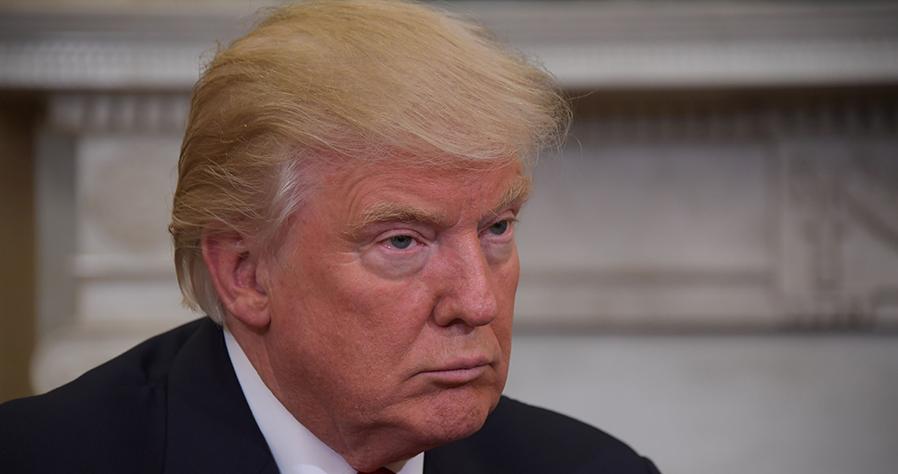Yang Xiyu, Senior Fellow, China Institute of Int'l Studies
Jan 17, 2017
Chaos on the Korean Peninsula would have a direct and far-reaching impact on the security environment of China. China push for the principle of “no war, no chaos and no nuclear weapons” on the Peninsula will become even stronger amid uncertainties posed by the election of Donald Trump and the planned tests by the DPRK.
Colin Moreshead, Freelance Writer
Jan 17, 2017
Few recent developments in Sino-US relations, preceding the 2016 presidential election, strained the imagination. Enter Donald Trump.
Sun Chenghao, Fellow, Center for International Security and Strategy of Tsinghua University; Munich Young Leader 2025
Jan 16, 2017
Many factors will impede efforts by the incoming US president to create a warmer relationship with Moscow. But even if U.S.-Russia détente is around the corner, a reversed version of the “Nixon moment” — in which the U.S. holds hands with Russia to balance China — is not a logical outcome of this triangular balance of power. How China and U.S. deal with challenges in their bilateral relationship, from trade to the South China Sea, will shape China-U.S. relations in the next stage.
Yu Sui, Professor, China Center for Contemporary World Studies
Jan 16, 2017
Trump could improve trust between Washington and Moscow by persuading NATO to slow the pace of its expansion or withdrawing troops from the Russian border, but even Russia does not imagine the new US government will abandon NATO expansion in a hurry. Nor will Moscow embrace the US at the expense of its relationship with Beijing. China, meanwhile, will continue to pursue a new type of great-power relationship with the US while seeking to work more closely with Russia, and look for more areas where their interests converge.

Patrick Mendis, Visiting Professor of Global Affairs, National Chengchi University
Jan 16, 2017
As the TPP trade pact fizzles away, China would happily expand its domain of influence in the Pacific Rim region while U.S. allies and friends inevitably look for a more reliable partner in the neighborhood. As these geopolitical realities set in, will Trump’s campaign promises to “Make America Great Again” eventually result in “Making China Great Again” and leave the U.S. much less relevant?
Dan Steinbock, Founder, Difference Group
Jan 13, 2017
As long-needed economic reforms are taking off in the Philippines, regime change plans have been prepared in the U.S. State Department against a democratically-elected president who enjoys very high popular support.
Richard Weitz, Senior Fellow, Hudson Institute
Jan 13, 2017
This year could see a major shakeup in the China-U.S. interaction in Afghanistan and Central Asia. Until now, the relationships in these regions between China and the United States, and between China and Russia, has been better than the Russian-American rivalry in Central Asia. But if the new Trump administration succeeds in improving Russian-U.S. relations, or decides to cut back on the U.S. military commitment in Afghanistan, China’s bargaining leverage vis-à-vis Russia in Central Asia will decline.
Ted Galen Carpenter, Senior Fellow, Randolph Bourne Institute
Jan 13, 2017
Neither China nor the United States should rationally wish to see a confrontation develop with a crucial economic partner. But we should also be aware of the limits of economic links as a restraining factor. For the first time since the rapprochement that Richard Nixon and Henry Kissinger orchestrated in the early 1970s, an incoming U.S. president seems to be considering translating the China-bashing rhetoric of a presidential campaign into actual policy.
Robert I. Rotberg, Founding Director of Program on Intrastate Conflict, Harvard Kennedy School
Jan 12, 2017
With São Tomé’s shift, only twenty-one members of the United Nations are still linked to Taiwan. China promises to build roads throughout the two islands and construct markets, shopping centers, and other commercial facilities.
Zheng Yu, Professor, Chinese Academy of Social Sciences
Jan 12, 2017
The Trump administration may exert unprecedented strategic pressures on China against the background of continuous implementation of the pivot to the Asia-Pacific. But that is unlikely to boost the US economy for many reasons, and the Republicans’ realist diplomatic philosophy and Trump’s businessman’s pragmatism make it possible for reversals in the next US government’s aggressive China policies.